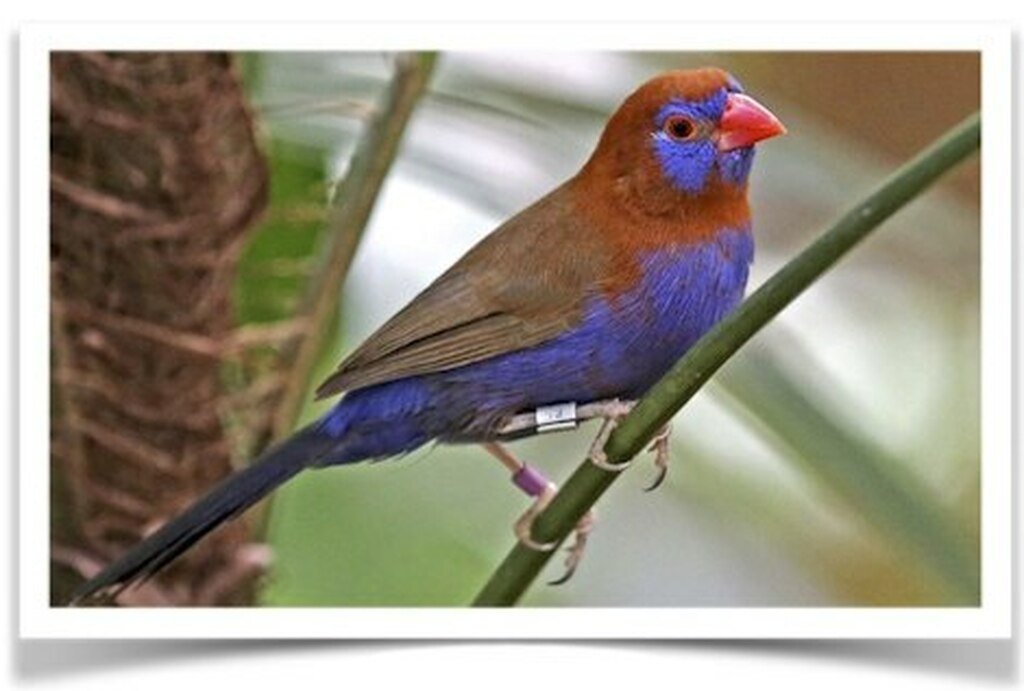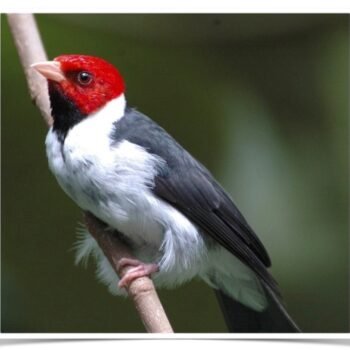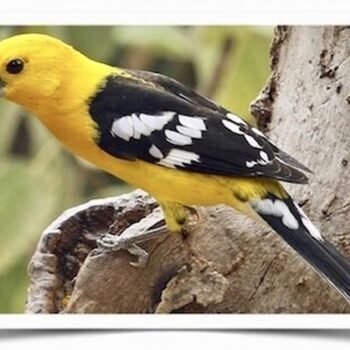The Purple Grenadier (Uraeginthus ianthinogaster) is best known for it’s vivid color and beautiful song, which is described as “a high, thin chit-cheet tsereea-ee-ee tsit-tsit, or cheerer cheet tsee-tsee sur-chit.” Purple Grenadier Finches for sale are an Estrildinae which may have originated in India and dispersed thereafter (towards Africa and Pacific Ocean habitats).
Geography: The Purple Grenadier Finch is found in subtropical and tropical (lowland) dry shrubland in Ethiopia, Kenya, Somalia, South Sudan, Tanzania and Uganda, an estimated global extent of occurrence of 1,500,000 km². The status of the Purple Grenadier Finch is evaluated as Least Concern.
Disposition: The Purple Grenadier Finch are generally peaceable, but tend to be aggressive toward closely related species such as the Cordon Bleu Finch.
Size: The length of the Purple Grenadier Finch averages 13.3 cm (5.25 in). All ages and sexes have a black tail, and adults have a red bill. The male Purple Grenadier Finch has a cinnamon-colored head and neck with a blue patch surrounding the eye. The rump of the Purple Grenadier Finch is purplish blue and the underparts are violet-blue with variable rufous patches. The female is smaller and mostly cinnamon brown with white barring on the underparts and silver-blue eyepatches. Juveniles are like females, but mostly unbarred tawny-brown with a reddish-brown bill.
Song / call: (in Kenya) is described as “a high, thin chit-cheet tsereea-ee-ee tsit-tsit, or cheerer cheet tsee-tsee sur-chit.” Click to hear Purple Grenadier song.
Sexing: The Female Purple Grenadier Finch is smaller and mostly cinnamon brown with white barring on the underparts and silver-blue eyepatches. The Male Purple Grenadier Finch has a cinnamon-colored head and neck with a blue patch surrounding the eye. The rump is purplish blue and the underparts are violet-blue with variable rufous patches.
Breeding: Purple Grenadiers breed during the rainy season. Southern Kenya: March-April. Northern Tanzania: December-February. Australia (in captivity): February-July
Diet: Classic Finch Seed, Australian Blend Goldenfeast, Dried Egg Food, Mineral Grit, Cuttlefish Bone, Herb Salad, Greens, Insects (mealworms, termites, small spiders, white worms, ant pupae)
DNA Testing
If there is no gender option listed for a bird on our website, that particular species is ‘monomorphic’, which means we’re unable to determine gender without purchasing DNA testing. DNA testing is an additional $149 per bird to guarantee preferred gender. DNA testing may add an additional 3-6 plus weeks to estimated delivery time to allow for gender results. See our FAQs for more info.













Reviews
There are no reviews yet.